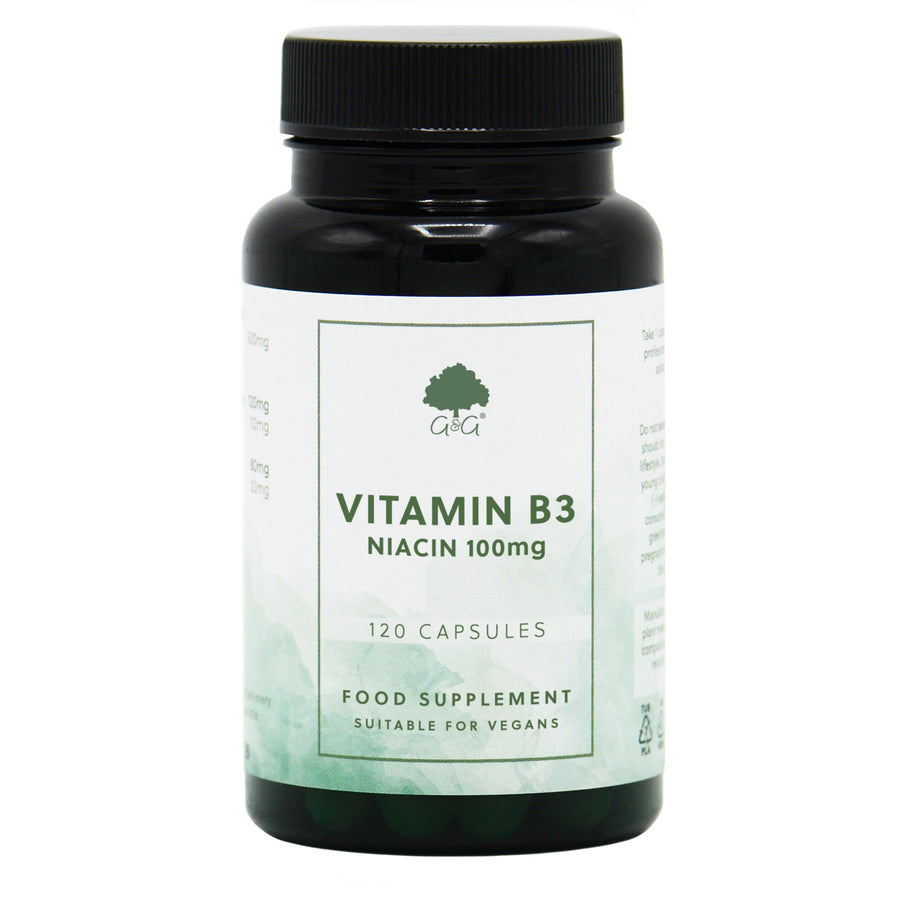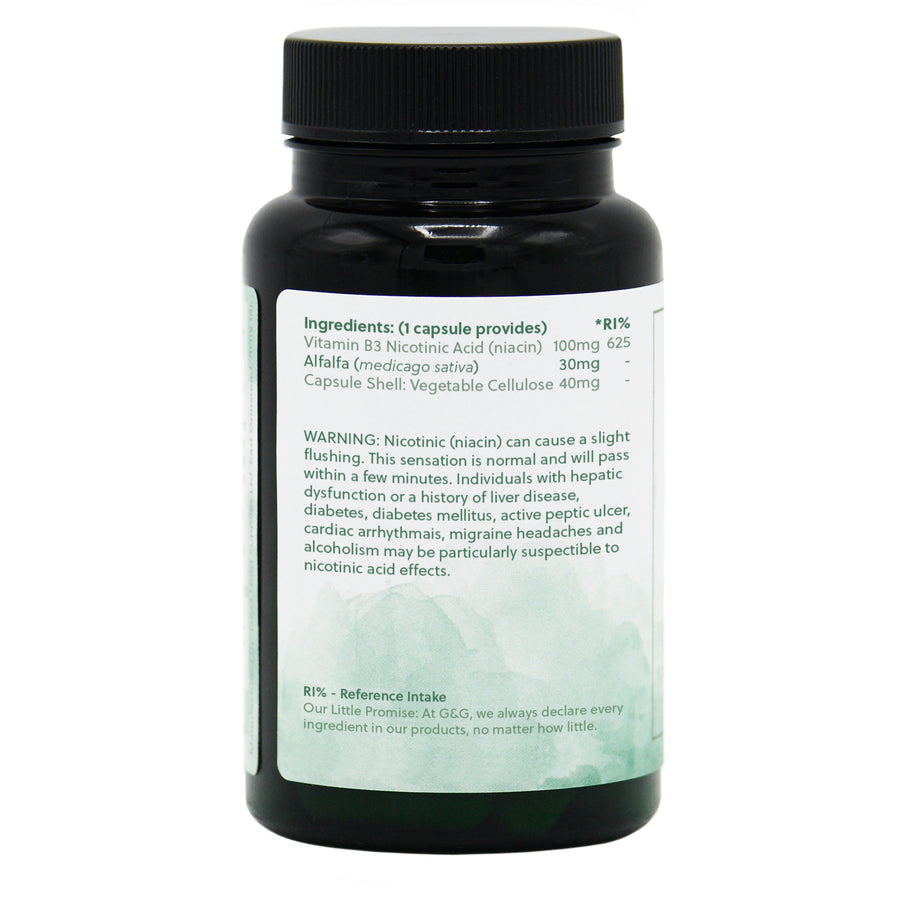

VITAMIN B3 NIACIN 100MG - 120 VEGAN CAPSULES
Translation to English:
• 100 mg pure nicotinic acid
• 4-month supply (1 per day)
• Suitable for vegetarians and vegans
𝗪𝗔𝗥𝗡𝗜𝗡𝗚: This product contains high-dose niacin. If you have not taken niacin before and are not familiar with its effects, we recommend starting with a lower dose, which is available in our Vitamin B Complex with Niacin.

Free shipping over 500 DKK.

Natural supplements

Fast delivery
Vitamin B3 Niacin supplement containing 100 mg of niacin in a vegetable cellulose capsule. The niacin form of vitamin B3 may cause flushing in sensitive individuals. It is recommended to build up the dose gradually. See product warnings for further information.
What is Vitamin B3 Niacin?
Vitamin B3 is a water-soluble vitamin, meaning that the body cannot store it. Niacin, also known as nicotinic acid, is a popular form of Vitamin B3 as it can cause a flushing effect for some individuals. It is recommended to take only small amounts or gradually build up to high doses of this form because of this.
Suitable for vegans
This supplement is suitable for vegans. It is also approved as kosher.
1 capsule contains:
| Ingredient | Quantity | RI% |
|---|---|---|
| Pure nicotinic acid (niacin) | 100mg | 625% |
| Capsule shells: vegetable cellulose | 40mg | - |
| Alfalfa | 30mg | - |
Take 1 capsule daily with a main meal, or as directed by a healthcare professional. Never take on an empty stomach.
Not suitable for young children
WARNING: 100 mg of nicotinic acid is likely to cause skin redness.This sensation is normal and will disappear within a few minutes. People with liver failure or a history of liver disease, diabetes mellitus, active peptic ulcer disease, gout, cardiac arrhythmias, migraines, and alcoholism may be particularly susceptible to the effects of nicotinic acid.
Do not exceed stated recommended dose. A food supplement should not be used as a substitute for a varied diet or healthy lifestyle. Store in a cool dry place, out of the reach and sight of young children.

 English
English
 Svenska
Svenska
 Dansk
Dansk


